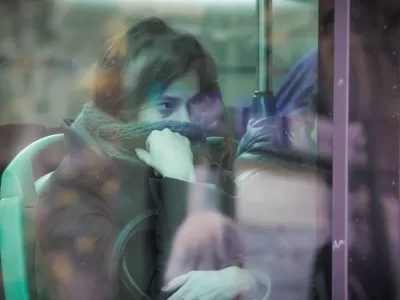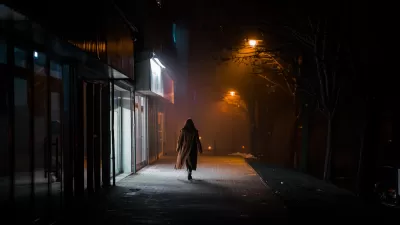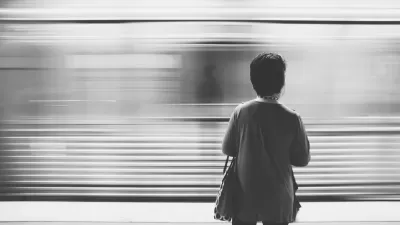Men are often overrepresented in consultations about how city facilities are built. To account for this, planners need to seek out women's comments and look for ways to better serve them, argues Alexander Starritt.

Men and women have different needs when it comes to city facilities. A recent piece by Alexander Starritt in Fast Co.Exist describes how a survey of Viennese transit riders revealed starkly different responses between genders. Staritt writes that cities have opportunities to serve their women who get forgotten when men are the default. "The crux is the consultation process—actually asking people how they live and then building the city to fit," Staritt says.
Among the strategies cities have used some concern safety, "Toronto has made a 'request stop system,' so women (and men, for that matter) can get off buses closer to their homes late at night," Starritt reports. "Several places, from Srinigar in Kashmir to Mexico City, have created women-only buses and subway cars," the article points out. There are also ways in which cities can better accommodate child care, which is more likely to be a concern for women than men.
FULL STORY: Women And Men Use Cities Very Differently

Maui's Vacation Rental Debate Turns Ugly
Verbal attacks, misinformation campaigns and fistfights plague a high-stakes debate to convert thousands of vacation rentals into long-term housing.

Planetizen Federal Action Tracker
A weekly monitor of how Trump’s orders and actions are impacting planners and planning in America.

In Urban Planning, AI Prompting Could be the New Design Thinking
Creativity has long been key to great urban design. What if we see AI as our new creative partner?

King County Supportive Housing Program Offers Hope for Unhoused Residents
The county is taking a ‘Housing First’ approach that prioritizes getting people into housing, then offering wraparound supportive services.

Researchers Use AI to Get Clearer Picture of US Housing
Analysts are using artificial intelligence to supercharge their research by allowing them to comb through data faster. Though these AI tools can be error prone, they save time and housing researchers are optimistic about the future.

Making Shared Micromobility More Inclusive
Cities and shared mobility system operators can do more to include people with disabilities in planning and operations, per a new report.
Urban Design for Planners 1: Software Tools
This six-course series explores essential urban design concepts using open source software and equips planners with the tools they need to participate fully in the urban design process.
Planning for Universal Design
Learn the tools for implementing Universal Design in planning regulations.
planning NEXT
Appalachian Highlands Housing Partners
Mpact (founded as Rail~Volution)
City of Camden Redevelopment Agency
City of Astoria
City of Portland
City of Laramie





























